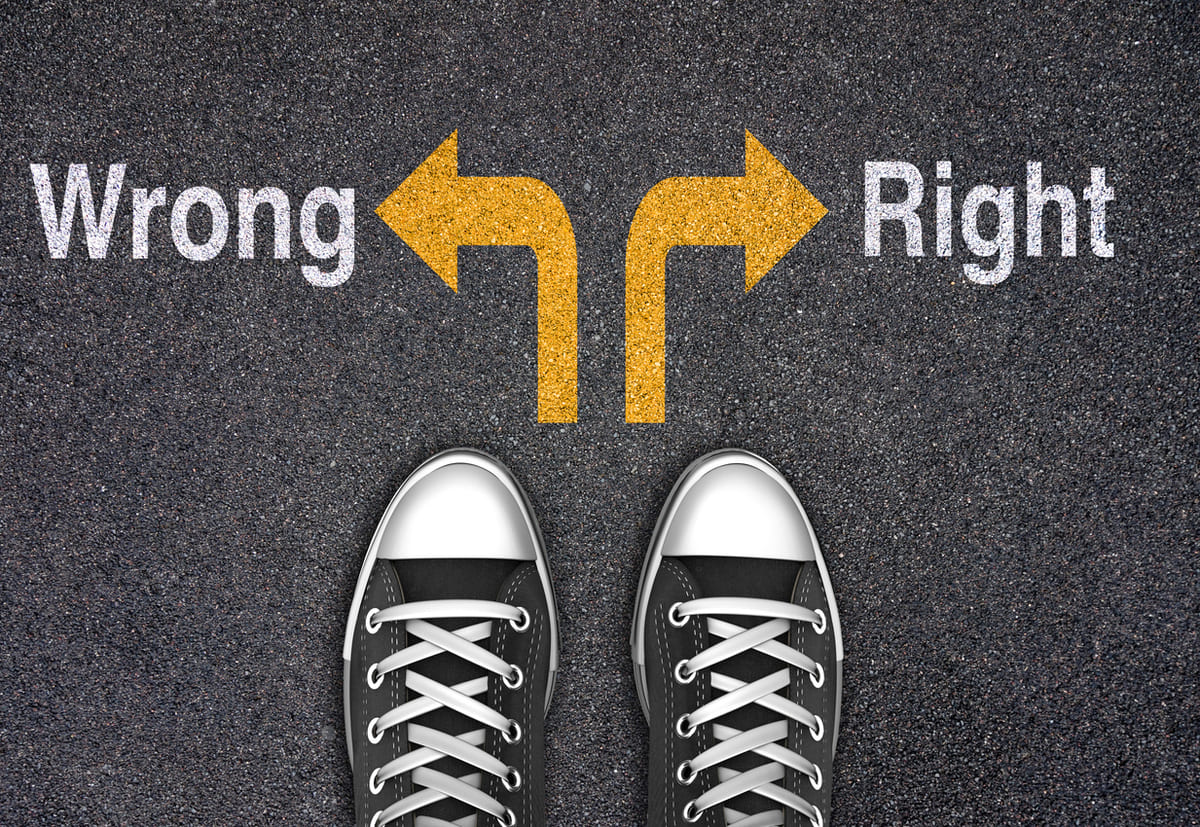Some things in life defy explanation, like the popularity of the Kardashians, the disappearance of one sock in almost every laundry load, and the feeling you get in your body when you know something isn’t quite “right.” Call it butterflies, red flags, a sixth sense, or gut instinct, but whatever you call it, pay attention to it! Your intuition is a powerful tool that can often sense when something or someone is wrong for you long before your conscious mind catches up.
Merriam-Webster dictionary defines intuition as “the power of knowing immediately and without conscious reasoning.” It’s a hunch, an instinct. It’s the thing that tells you not to take that job, or trust that person, even when all the evidence suggests otherwise.
“I define intuition as the pipeline or flow from your higher or truest self to you,” says Dani Frank, a Seattle life coach. “I think that the capacity to tap into that higher and truer self always exists, and when that flow is happening, we can feel it.”
Gut Check

One of the central places we feel what Frank refers to as “that flow” is in our gut, or microbiome. That’s why intuition is frequently described as a gut reaction. Studies show that there is a clear connection between brain health and gut health. An article published by Harvard Medical School states that “the enteric nervous system that regulates our gut is often called the body’s ‘second brain.'” It goes on to add that “this extensive network uses the same chemicals and cells as the brain to help us digest and to alert the brain when something is amiss.”
Frank, who has been conducting workshops on gut health for more than five years, agrees and explains that approximately 95% of serotonin is manufactured in the gut, along with a high percentage of dopamine. These “happy hormones” are the neurotransmitters that are responsible for increasing positive moods and emotions. A lack of either of these chemicals has been linked to addiction and mood disorders.
“If the gut isn’t healthy, we are not getting all of the brain chemicals we need,” Frank explains. “The connection is real and strong, and it is everything to our mental health.”
Fortunately, a healthy gut is largely within your control. Limiting things like processed foods, sugar, caffeine, and alcohol and including lots of whole foods and pre and probiotics can optimize gut health, which in turn can optimize the connection between the mind and body. When all systems are firing, you can better tune in to your intuition.
Don’t Ignore The Signs

Intuition manifests in many ways, most commonly through physical symptoms like sweaty palms, a queasy stomach, or changes in breathing. But other symptoms take place in the nervous system and manifest in less obvious ways depending on whether or not we are listening to our gut.
“Our nervous system provides us with little breadcrumbs that can let us know when we are tapping into or ignoring our intuition,” describes Frank. “If we are tapped into it, we are in more of a state of homeostasis,” she continues. “It’s when we ignore it that we can begin to experience things like depression, interrupted sleep, unhealthy food cravings, and a general feeling of being stuck or unable to move forward.”
Why would someone ignore their intuition? Maybe because it’s telling them something they are not ready to hear or bringing something to light that they are not prepared to acknowledge.
“Change is hard,” admits Frank. “We don’t like discomfort.”
She explains that our minds and bodies are adaptable and get used to being in a situation, even if that situation isn’t ideal. That is why people stay in toxic relationships or jobs that they hate. Physiologically they may feel like walking away is the worst thing they could do, although logically, they know they should.
“When you’ve been in an unhealthy situation for a while, you adapt to that level of toxicity,” she says. “Moving to a safer space feels uncomfortable.”
Strengthening the Connection

Intuition can be hard to hear in a world full of external noises. Social media, friends and family, and other factors can make us second-guess ourselves and what we know is right for us. It’s easy to be influenced by what we think we should be doing based on what the world says is smart, powerful, or acceptable.
“You have to create moments of stillness and silence to hear your gut talking to you,” advises Frank. “If we don’t create those environments, we can lose sight of our intuition and what it is trying to tell us.”
A few of Frank’s favorite ways to tune out the world and tune in to her intuition include:
Breathe: This doesn’t have to be an hour-long process, Just sit quietly for five minutes and focus on your inhalations and exhalations.
Unplug: Find a quiet space and disconnect from technology, social media, and any other distractions. Nature offers a great place to do this.
Journal: Frank says journaling is a powerful tool to tap into your intuition. Don’t worry about grammar or whether it makes sense. Just let words free flow onto paper and pay attention to what emerges.
Meditate: If you aren’t sure where to start, there are some beautiful, guided meditations that can help. Frank likes the Insight Timer app for its vast and free selections.
Like anything, learning to listen to and trust your intuition takes practice. Once you master it, you will learn to immediately recognize when your body is trying to tell you to pay attention to a person or situation. When you let go of the fear of change and embrace the idea that your body can reject the things not meant for you, you open yourself to being redirected to your highest and most authentic self.
Read Next:







